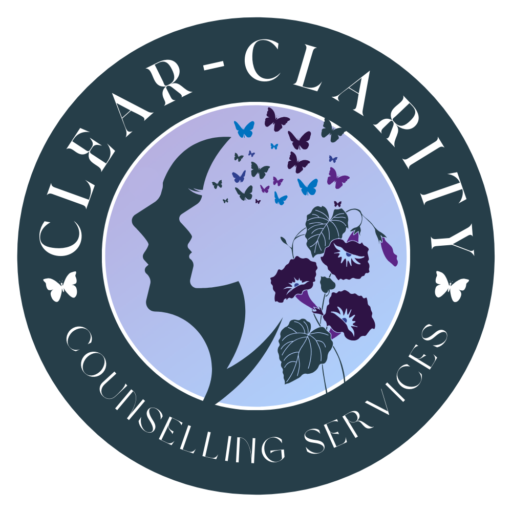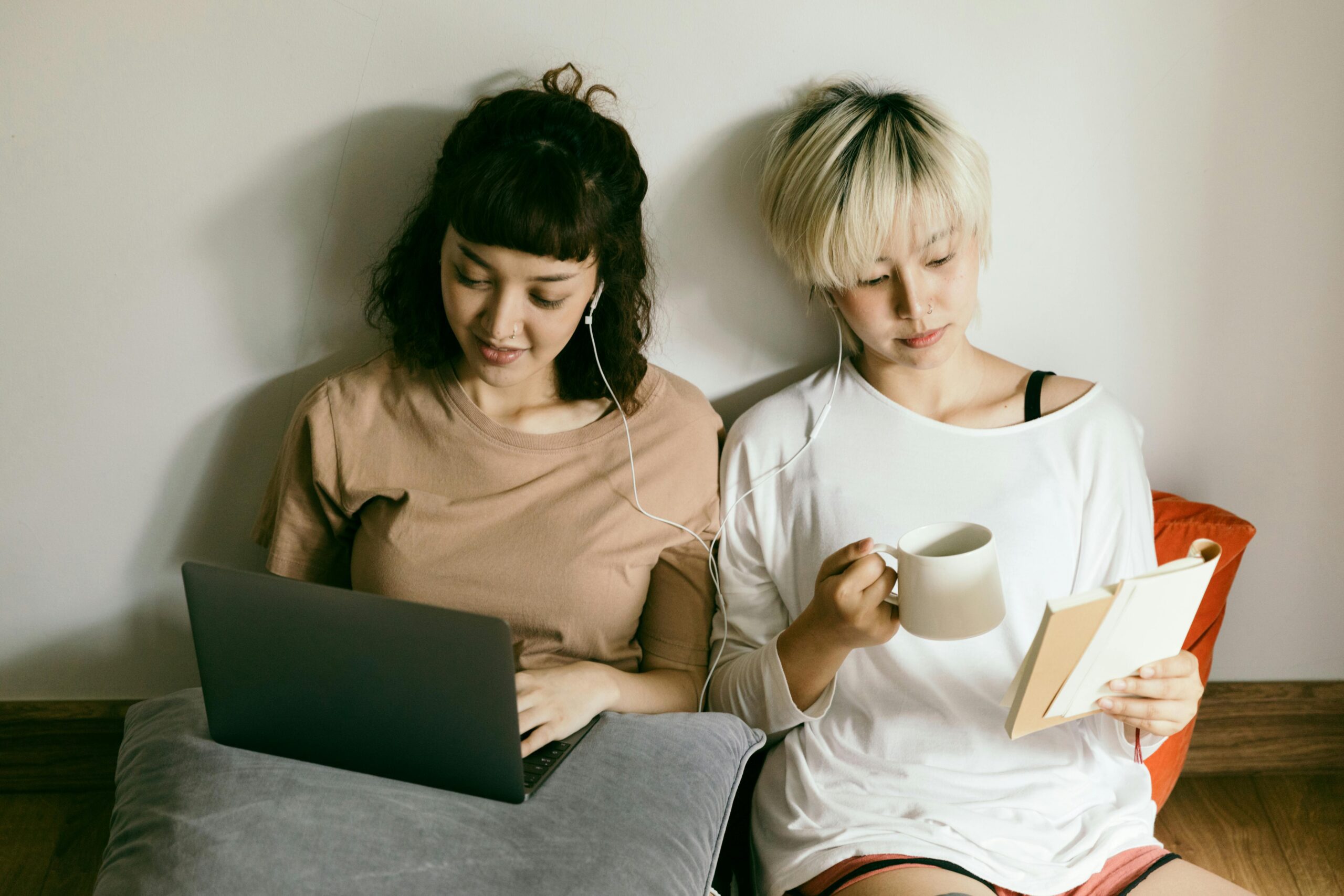Online support from Clear-Clarity Counselling Services in Gillingham Kent
Millions of people struggle with anxiety daily and are looking for ways to find relief. Lessening anxiety is a long-term process – not something that can be completed overnight. But there are ways to fight your anxiety that can be integrated into your daily life.
Living with anxiety can be incredibly difficult. It’s important that you don’t allow yourself to live with the symptoms forever. You need to make smart decisions and commit to long-term treatment. The following ten strategies can help you begin to lessen your anxiety in the here and now.
1. Control Your Breathing
Controlling your breathing is a solution – and it’s not what you think. Even if you feel you can’t take a deep breath, you need to slow down and reduce your breathing, not speed it up or try to take deeper breaths. Take more controlled, slower breaths, using the following technique:
Breathe in slowly and gently through your nose for about 5 to 7 seconds.
Hold for about three or four seconds.
Breathe out slowly and gently through pursed lips like you’re whistling for about 7 seconds.
Repeat this exercise approximately ten times. This method of breathing will ensure that you’re not hyperventilating (a common problem of those with anxiety) and will help to regain the Co2 balance in your body. (please visit my previous blog: 5 breathing exercises for lessening anxiety).
2. Talk to Someone Friendly
Another very effective technique is to talk to someone you like and trust, especially on the phone. Don’t be shy about your anxiety – tell them you feel anxious and explain what you’re feeling.
Talking to nice, empathetic people keeps your mind away from your symptoms, and the supportive nature of friends and family gives you an added boost of confidence. If you’re suffering from a panic attack, it also helps you feel more confident that if something were wrong, you’d have someone that can watch over you. Talking therapy and counselling is another way to explore what might be going on for you and can help you to find another perspective on life events that may be contributing to the anxiety.
3. Try Some Aerobic Activity
During periods of anxiety, your body is filled with adrenaline. Putting that adrenaline toward aerobic activity can be a great way to improve your anxiety. Exercise has numerous advantages for lessening anxiety symptoms:
Exercise burns away stress hormones that create anxiety symptoms.
Exercise tires your muscles, reducing excess energy and tension.
Exercise releases endorphins in your brain which can improve mood.
Exercise is linked to healthier breathing. It is also a healthy distraction.
Aerobic activity, like light jogging or even fast walking, can be extremely effective at reducing the severity of your anxiety symptoms, as well as the anxiety itself.
4. Find What Relaxes You
It may be beneficial to make a list of things you enjoy and that help you to relax so you can reference it when symptoms of anxiety arise. When you notice your anxiety rising turn to those activities to help stop symptoms before they escalate.
For example, if you find that a warm bath is relaxing, don’t wait, run a bath, Maybe add a few nice scents and get in. Whether it’s a bath, a shower, a nice walk, or a massage – if it works, do it right away, rather than allowing yourself to become overwhelmed.

5. Aromatherapy and Essential Oils
Essential oils, the extract from plants, have been used for thousands of years to treat several conditions, including anxiety. Essential oils activate certain areas of your brain and release feel-good chemicals such as serotonin. They have been found to ease symptoms of anxiety, stress, and depression, improve mood, and improve sleep.
Recommended use includes diffusing, inhalation, or topical treatment which can lessen anxiety symptoms. When diffusing an essential oil or essential oil blend (a few oils mixed together) you will need an essential oil diffuser to fill your space with the desired scent.
Inhalation is used by deeply smelling the essential oil straight from the bottle or by applying a drop or two of the oil on something such as a diffuser pad (often felt or leather) or lava bead that is connected to a bracelet, necklace, or even keychain. You can also place a drop or two of essential oil into your hands, rub them together, then cup your hands and take a few deep inhalations to get the desired effect.
You can also apply essential oils directly to the skin in areas such as the back of the neck, the wrists, over the heart, behind your ears, and on your carotid artery in your neck. Proper dilution, for a healthy adult, is typically 2% which means that you mix one teaspoon of a carrier oil (examples include olive oil, grapeseed oil, almond oil, or avocado oil) with 2 drops of essential oil. It is recommended that all essential oils be diluted however, many individuals make a personal choice as to whether they want to dilute and how much.
Essential oils that are good for treating anxiety include: Lavender, cedarwood, Bergamot, Chamomile
6. Learn How to Manage Your Anxious Thoughts
Anxiety doesn’t come out of the blue. When you have anxiety attacks, it’s often because your mind tends to spiral into negative thoughts – often without your control. Sometimes you can control this anxiety by keeping these thoughts at bay and learning to dismiss triggers that cause you anxiety.
For many, this is easier said than done. But there are many different strategies you can try that may be effective. These include:
A Question Checklist
When you feel anxious, have a checklist on hand of questions to ask yourself about that anxiety experience. The longer the checklist, the more you’ll find that your thoughts become more realistic. Questions that you can use include:
Is there a reason to believe something is wrong?
What evidence is there that something is wrong?
Is there a chance I’m blowing this out of proportion?

7. Music to lessen anxiety
Music can have a powerful effect on your mood and on anxiety. They key however is to not just choose songs you like. but also make sure that you are listening to music that represents the way you want to feel. Happy or relaxing music can directly impact your mood and the way you feel.
While many people find it soothing to listen to angry music when they’re angry or sad music when they’re sad, the truth is that this type of music will only help you get in touch with those negative emotions. That won’t help you feel better. When you’re trying to stop anxiety, you should listen to music that will help you feel the way you want to feel.
8. Learn Grounding Techniques
When you are feeling anxious or having a panic attack, knowing grounding techniques which can help you feel more in control can be extremely helpful. Below are 2 popular methods for grounding yourself and you can practice them when you are not feeling anxious so that when symptoms do arise these techniques are second nature and feel natural.
Progressive Muscle Relaxation: This is a technique which can help you learn to relax. People who experience anxiety are often holding tension in their body throughout the day. By learning to release that tension and feel relaxed you can combat feelings of anxiety as they arise. The more you practice the easier this will get. This exercise consists of tensing certain muscle groups and then relaxing them.
Body Scan: The purpose of this grounding technique is to help you raise awareness of your body and what is going on in it. The focus is not on the feelings of good, bad, painful, pleasurable, etc, but rather that you notice there is a sensation (tingling, warmth, tightness, etc).
To do this, lay down and simply breathe for a minute. Begin with your back, feeling the surface you are on. Then notice one foot and notice sensations as you slowly move up your leg, move to your other foot and up the leg, moving up to the stomach, chest, hands, and arms, all the way to the top of your head.
9. Living in Today
It is important to understand that anxiety is a normal part of life. It is something that everyone experiences. It is when anxiety interferes with daily functioning that it becomes unhealthy.
When your focus is on your fears and worries about the future it robs you of the present. Each day becomes trying to live with anxiety instead of trying to live in general. Learning to accept that you have anxiety and trying to live a great and exciting life anyway is important.
There isn’t a rapid cure for anxiety and having healthy anxiety is natural part of the human experience. However, when your anxiety is interfering with daily living it is a problem. Learning to recognise your symptoms, as well as your triggers, and working to manage them the first step. Seeking counselling to address root causes for your anxiety is important. Having healthy coping skills like the things discussed above can start you on the right track for diminishing your symptoms and leading a happier, healthier life.

About the Author
My name is Linda Thompson, I am a qualified and insured counsellor working in Gillingham and Medway, Kent. I support people with all kinds of issues, from bereavement to anxiety, divorce, trauma, abuse and coping with the general stressors of life. Please get in touch to book a session with me. Join me on Facebook.

